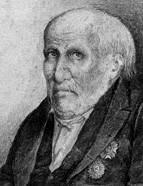

In 1821, during the revolutionary upheavals sparked by the Porto Revolution, Lisboa was appointed Inspector General of Literary Establishments, a position that involved overseeing the censorship of all published material in the Kingdom. During the debates surrounding independence, he was highly active in the press, publishing the journal Conciliador do Reino Unido [ Conciliator of the United Kingdom ] as well as numerous pamphlets advocating for the unity of the empire. Between 1821 and 1828, he published nine journals and 42 pamphlets (Kirschner, 2009, p. 207). He was among those who only belatedly embraced the project of Brazilian independence.
Lisboa served as member of the Constituent Assembly of 1823 and subsequently maintained a vigorous parliamentary career, becoming a senator in 1826. He gained the trust of Emperor Pedro I, who, as early as 1823, appointed him Desembargador do Paço [ Magistrate of the Royal Household ] and Deputado da Mesa de Consciência e Ordens [ Deputy of the Board of Conscience and Orders ]. During the crisis provoked by the dissolution of the Constituent Assembly, Lisboa used the press to justify Pedro I’s actions and to defend Brazil’s efforts to gain recognition for its independence. In this contentious context, he was tasked by the government with writing an account of the principal events of the independence movement, leading to his most ambitious historiographical project: a general history of Brazil. Lisboa’s services to the state and the Bragan ç a dynasty were recognised with the titles of Baron (1823) and Viscount of Cairu (1826). The breadth of his intellectual activity is evident in his membership in various societies, including the Society for the Promotion of National Industry in Rio de Janeiro, the Bahia Agricultural Society, the Philosophical Society of Philadelphia, the Agricultural Society of Munich, the Society for the Promotion of Industrial Sciences, the Historical Institute of France, and the Royal Institute for the Promotion of Sciences in Naples (Lisboa, Bento, 1839, p. 187).
This work is financed by national funds through FCT - Foundation for Science and Technology, I.P, in the scope of the projects UIDB/04311/2020 and UIDP/04311/2020.
